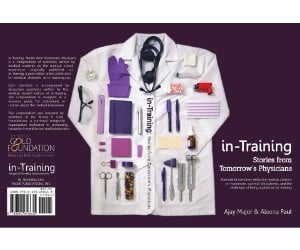This column has focused on the process faced by every medical student, especially third-years: learning the basics of clinical medicine while trying to choose which specialty is for them. This is not an easy task, and although for many it begins before the third year, it usually is not solidified until clinical experiences confirm a student’s passion and proclivity for a certain discipline. The articles in this column have sought to offer particular stories and experiences that may be typical of a specialty, highlighting as many of the “core” specialties as possible. I am only one person, and these experiences are from my perspective as I try to sort through this process myself. This article will explore the process of narrowing down your specialty choice, including some things you may want to consider besides the obvious question, “which specialty do I like the most?”
Medical School
Getting into medical school was only the first hurdle. Learn more about how to be successful in medical school.
Sustainability: How Your Partnership Can Survive and Flourish During a Medical Education and Career
Happy New Year from Student Doctor Network! I have always loved the beginning of a new year. It’s a time to reflect on the past, look ahead to the future, find a fresh perspective on your life and situation, and create new wishes for yourself and your family going forward. There is an electricity that surrounds us and gives us hope that not only can we achieve what we’re dreaming of, but we can also find more happiness and fun in our lives.
Chronicles of a Med Student: Embracing Change
There’s no doubt that medical school has changed me thus far. I still have a … Read more
The Chemistry of Gender and Coming Out in Medical School
“Is it trans or cis?” It’s a question that has tortured many pre-professional students studying … Read more
The Value of Coaching in Medicine
Coaching is an integral part of sports, it’s often used by corporate executives, and even helps … Read more
Medical Students and Mental Health
Mental health is a topic which is discussed more openly in our society in recent decades and is, slowly, become less stigmatized. This, ironically, does not seem to be the case when it comes to the issue of mental health problems among medical students. The nature of medical school, and attitudes of medical students themselves, can set up barriers between students who need help and the programs that can help them. This article looks at the widespread nature of this problem in American and overseas medical schools, and also what can be done to help solve it.
Making Time for Fun
For many student spouses, medical school can seem like a time “in limbo.” You are … Read more
Fatigue: A Love Story
This story originally appeared here on WhiteCoated.com. For me, it always starts behind my eyes. … Read more
True Pass-Fail Curriculum: Key to Learning and Collegiality
Republished with permission from here. Being a pre-medical student is largely about the numbers — … Read more
Four Errors Students Make In Their First Semester of Medical School
Updated November 4, 2021. The article was updated to correct minor grammatical errors. Settling into … Read more
Having Children In Medical School
When my husband was in medical school, we had a social gathering for medical students … Read more
Pediatrics In Review: A Look at Clerkship #2
Central to the skillset of every physician is the differential diagnosis; this is the process by which new patients are evaluated to establish the most likely diagnosis. Similarly, the first clinical year of medical school is like a differential for each student, except instead of a medical diagnosis, students are seeking to determine which specialty they will choose. This column explores this differential: experiences from each rotation by a current third year student.
In my first rotation, Women’s Health, I wrote about the humbling experience of helping with the birth of a child. This miracle of life is what attracts many people to the field of obstetrics, but working directly with the baby during the newborn period and throughout his/her childhood is, of course, the role of the pediatrician. As I’ve heard many times on this clerkship, “children are not simply small adults,” and understanding human development, the unique diseases of childhood, and the specific needs of young humans is often complex. For this reason, pediatrics is one of the oldest medical specialties, and remains the third largest by volume in the United States.[1]
Reclaiming a Passion
Republished with permission from here. Note: Interview conducted by medical student editor Evan Torline. Sometimes … Read more
It’s Real: The Sophomore Slump
I strolled into second year, fresh off the plane from my South American adventures and ready to hit the ground running, expecting another experience like first year. It would be smooth sailing as long as I stuck to my schedule and my friends. I was good to go. Little did I know, the “second year slump” was about to hit me like a ton of bricks. I had never before experienced such a feeling in my life—I was accustomed to challenges, pushing through whatever stood in my way, always making it through to the other side. But to be honest, few things in my prior academic experiences have challenged me as much as medical school. Before medical school, most of the challenges I faced seemed far less daunting to me than what came in the second year of medical school, even the first year of medical school. So imagine my surprise when I found myself having my first meltdown of medical school just a few weeks into my second year: Wasn’t I supposed to be good at this by now?
5 Things I Wish I Knew At The Beginning of Medical School
It is not just nostalgia and excitement that grips me as I am nearing the end of medical school. A part of me is terrified at the thought of finally having to own that white coat, to be the person in charge. There is another part (though not as dominant) that is filled partly with regret. Regret over the things I didn’t do, the things I could have done differently, the moments I missed, the unnecessary anxieties…
Not “Ours” Anymore: Sharing Our Doctor Spouses
By Amy Rakowczyk
One thing is certain during medical school: your medical spouse is going to study and work a lot of hours. This is a necessary part of becoming a doctor. They need years of studying, preparing, and training in order to be able to perform the job. The time required means that you, the medical student spouse/partner, will have less time with them. There will be fewer hours when they are available. That is the hard reality.
It’s easy to start thinking about how unfair this is. You are left with gaping holes of time and are by default in charge of all the non-medical school items. You are working harder too, with less support. The unfairness of it can quickly turn into resentment and bitterness.
Book Review | in-Training: Stories from Tomorrow’s Physicians
In early 2012, medical students Ajay Major and Aleena Paul started in-Training.org, a website dedicated to the medical student community at large with a goal—according to the site—to become “the intellectual center for news, commentary, and the free expression of the medical student voice.” Since then, the site has grown by leaps and bounds, recently celebrating their 1000th article publication. Four years after the launch of the website, Major and Paul—who are now beginning their residency training—compiled around 100 of these essays into a book: in-Training: Stories from Tomorrow’s Physicians.
On Being a Medical Student
Republished with permission from here. Earlier in the summer, I was speaking with a friend … Read more
Managing Bipolar Disorder in Medical School
Two days before interviewing at the medical school I now attend, I couldn’t get out of bed. At the nadir of my eighth major depressive episode in eight years, I seriously considered whether I could make the trip. Thankfully, I did. And thankfully, six days after that interview I met the psychiatrist who would finally piece together my long and steadily worsening psychiatric history.
I sat in his office, quiet and dulled compared to my spring and summer self, and began recounting my story – the weightiness of my current depression, the semester in college marked by a mere two to four hours of sleep a night (“insomnia” according to my doctor then), and the clockwork nature of my mood changes each year. Within ten minutes, he stopped me mid-sentence and said, almost casually, “You know, you show a lot of signs of bipolar disorder.”















